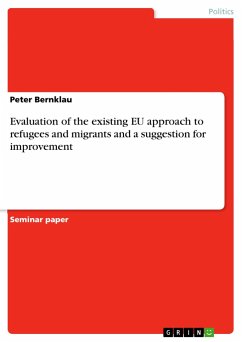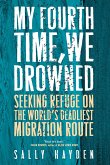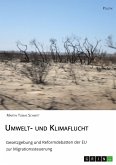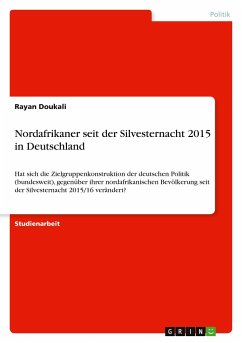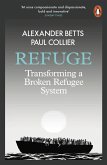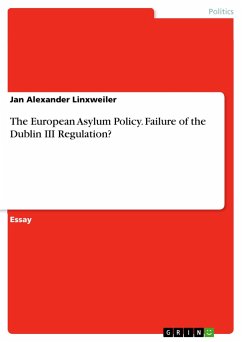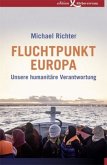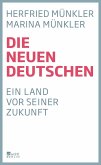Seminar paper from the year 2016 in the subject Politics - International Politics - Topic: European Union, grade: 1,0, Anglia Ruskin University, language: English, abstract: Why is the current flow of migration generally called a crisis? In the last century, Europe faced major flows of migration and large movements of people, especially during and after the world wars. Nevertheless, the term crisis was never associated with refugees or used in order to label a flow of migration before.A crisis is an expression for a time of intense difficulty or danger (Oxford University Press, 2016). Therefore, in the context of the EU and the current situation, the term indicates that the refugees are posing enormous difficulties and dangers to the European Union. More specific, these difficulties consist of the search for a mutual European agreement over the distribution and the acceptance of asylum seekers. This discussion is threatening the unity of Europe and causing therefore dangers to the uncertain future of the European Union.The following chapter provides a review of the reasons for, origins and the development of the refugee crisis. It explains where and when the crisis started and how it progressed. The period of investigation starts in May 2011 and examines the main developments until the 30th of April 2016, later developments are not considered. Subsequently, through the gathered information, the European approach towards the refugees and migrants is evaluated, analysed, and compared to possible solutions. The succeeding last chapter finally suggests a fitting problem-solving approach, which would enable the EU to tackle the refugee crisis. This approach includes the possibility for Europe to solve the whole issue together as a unity while still respecting the desires of each EU member state.
Hinweis: Dieser Artikel kann nur an eine deutsche Lieferadresse ausgeliefert werden.
Hinweis: Dieser Artikel kann nur an eine deutsche Lieferadresse ausgeliefert werden.

